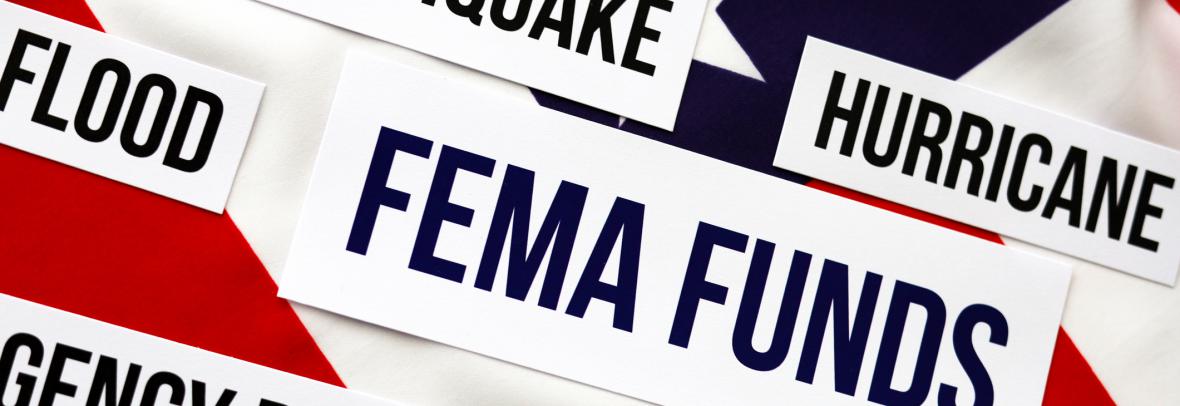
A Disaster Recovery Center – a FEMA-state storm-response partnership – is now open in Collier County, in addition to two in Lee, and one in Charlotte and Sarasota.
LEE COUNTY, Fla. – Gov. Ron DeSantis announced the opening of a new Disaster Recovery Center (DRC) in Collier County to help Floridians impacted by Hurricane Ian. The Federal Emergency Management Agency (FEMA), a partner in the Disaster Recovery Center program, has also expanded services.
The Centers’ goal: To provide a one-stop shop for individuals or businesses that need help recovering from the storm.
The Centers are accessible – parking, ramps, and restrooms – for people with disabilities. They have assistive technology equipment and Video Remote Interpreting is available, along with in-person sign language upon request.
Disaster Recovery Centers
Collier County
Veterans Community Park
1895 Veterans Drive
Naples, FL 34109
Sarasota County
Shannon Staub Library
4675 Career Lane
North Port, FL 34289
Lee County
Joseph P.D Alessandro Office Complex
2295 Victoria Ave.
Fort Myers, FL 33901
Lakes Regional Library
15290 Bass Road
Fort Myers, FL 33919
Centers are open 9 a.m. to 6 p.m. seven days a week.
FEMA
FEMA has also opened Disaster Recovery Centers in Central Florida, in Orange and Osceola counties:
Orange County
Barnett Park
4801 W. Colonial Drive
Orlando, FL 32808
Osceola County
Hart Memorial Central Library
211 E. Dakin Avenue
Kissimmee, FL 34741
Survivors don’t have to go to a Disaster Center to apply for FEMA help. They can also go online to disasterassistance.gov, use the FEMA mobile app or call (800) 621-3362. The line is open every day from 7 a.m. to 11 p.m., and help is available in most languages. If you use a relay service, such as video relay (VRS), captioned telephone or other service, give FEMA the number for that service.
In addition to the Centers, FEMA teams are canvassing neighborhoods to help residents apply for FEMA assistance and answer questions about federal assistance. DSA teams wear FEMA attire and have federal photo identification badges. There is no charge for service.
What is a Disaster Recovery Center?
According to Florida Disaster.org, federal, state, local and non-governmental groups play specific roles. A sample of those duties includes:
State of Florida
- The Division of Emergency Managements Bureau of Recovery manages all ESC operations. The Deputy State Emergency Response Team (SERT) Chief coordinates with other state agencies to determine survivor needs. Essential Services Centers (ESC) will be established at sites identified by the county emergency manager director and the Deputy SERT Chief.
- The Department of Children and Families provides personnel for food stamp replacement and crisis counseling.
- The Agency for Workforce Innovation help with job placement and training referrals.
- The Department of Elder Affairs connects elderly Floridians to assistance.
- The Department of Veterans Affairs provides information on benefits, pensions, insurance settlements and VA mortgages.
- The Division of Emergency Management, Bureau of Mitigation provides information on national flood insurance. The Divisions Bureau of Recovery conducts a State Housing Survey to identify present housing needs in the affected area.
- The Department of Highway Safety and Motor Vehicles provides replacement drivers licenses, identification cards, motor vehicle tag services, voter registration, organ donation designation and emergency contact registration.
- The Department of Agriculture provides info about loan programs to assist eligible farmers, ranchers and aquaculture operators.
- The Department of Financial Services provides info about federal and state assistance programs, including insurance awareness.
U.S. federal government
- The FEMA DRC manager works jointly with state staff, along with supporting the security and safety needs of the DRC.
- FEMA Individual Assistance, Safety, Security, and Logistics works with the DRC Coordinator to make sure DRC locations will work, along with other legal functions to make them happen.
- FEMA Applicant Services provides assistance registrations.
- The Small Business Administration (SBA) provides information on low-interest home, personal property and business loans for restoring or replacing uninsured or underinsured disaster-damaged homes and businesses.
- FEMA Mitigation provides info on the National Flood Insurance Program (NFIP).
- Tax Assistance helps with expedited federal or state tax deductions for casualty losses to homes, personal property or household goods.
- The Young Lawyers Association provides free legal services for low-income survivors.
- The Social Security Administration will assist in expediting delivery of checks delayed by the disaster and applying for Social Security disability and survivor benefits.
© 2022 Florida Realtors®
Go to Source
Author: kerrys



